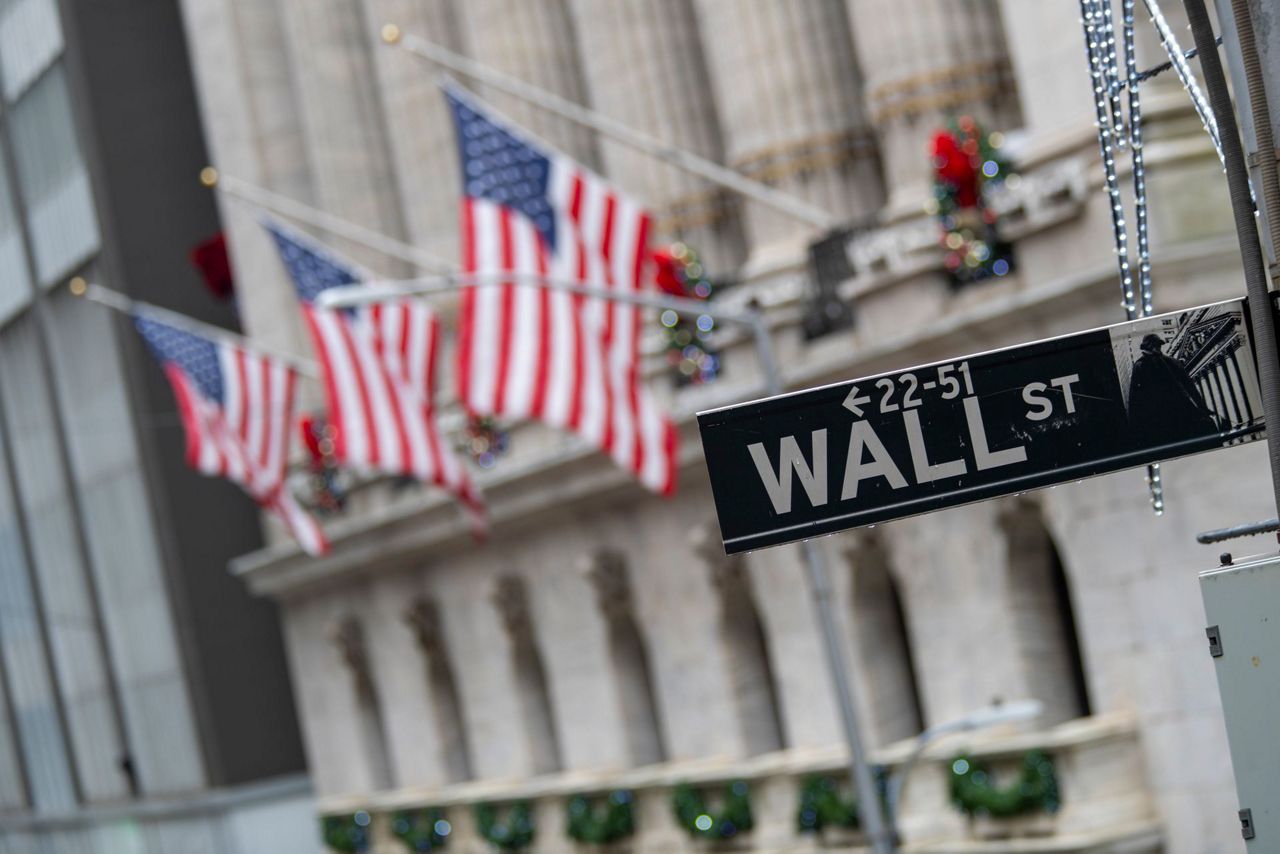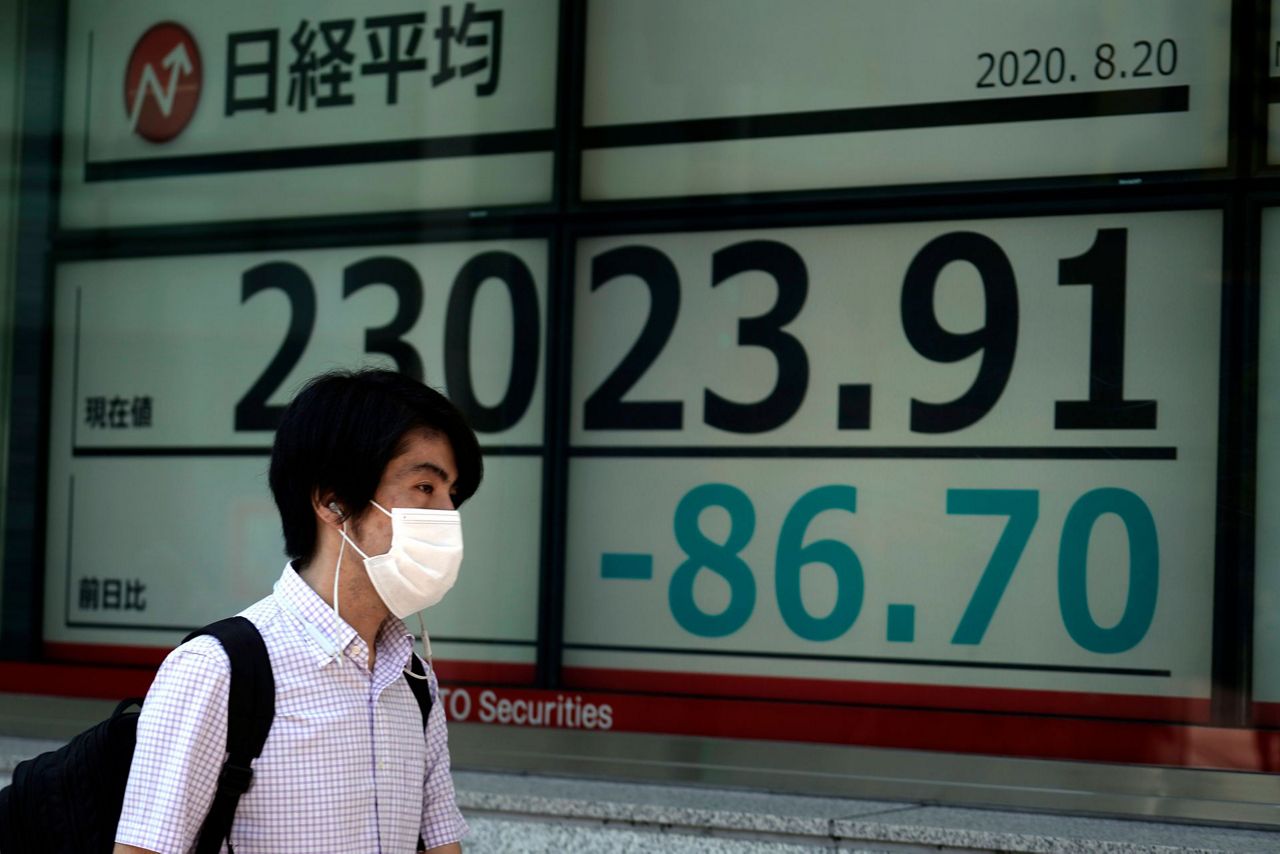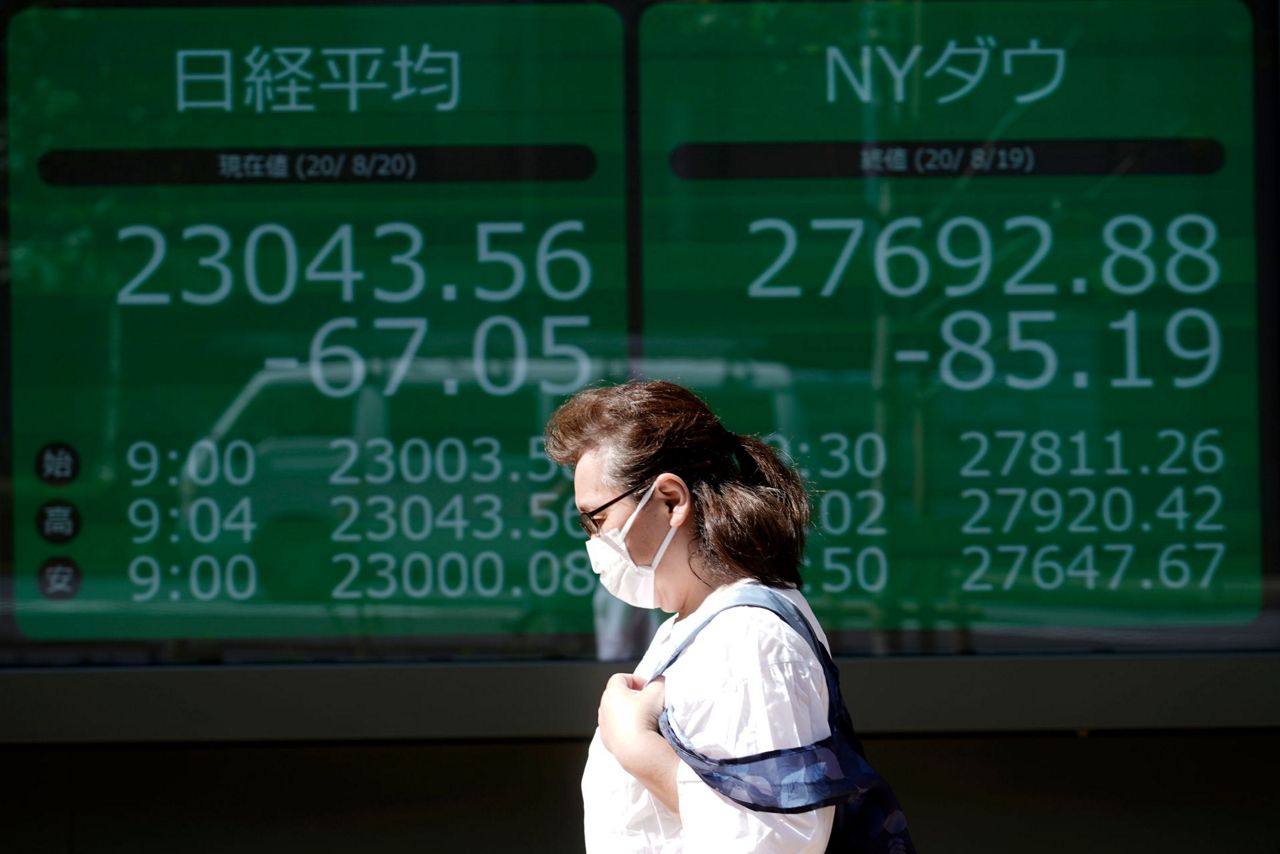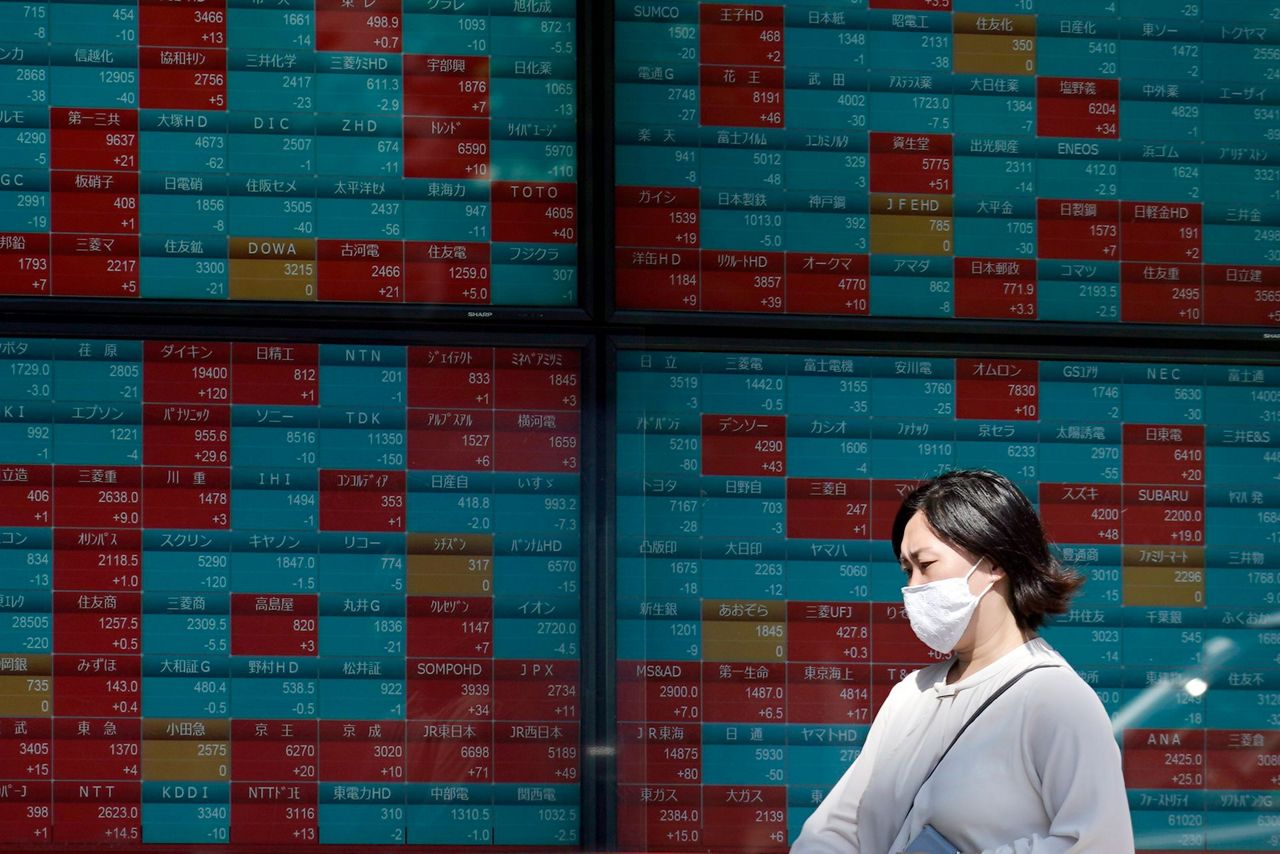NEW YORK (AP) — Most stocks are falling on Wall Street Thursday following discouraging data about the economy, but more gains for tech stocks are keeping the S&P 500 close to its record level.
The benchmark index was up 0.2% in afternoon trading after rallying back from an earlier 0.6% loss. The Dow Jones Industrial Average was up 53 points, or 0.2%, at 27,746, as of 3:17 p.m. Eastern time. The strength for tech stocks, meanwhile, had the Nasdaq composite up 1.1%.
The initial move for stock indexes, along with Treasury yields, was downward after a report showed that slightly more than 1.1 million U.S. workers applied for unemployment benefits last week. That’s up from 971,000 the prior week and an indication that the pace of improvements for layoffs may be stalling.
The number of jobless claims had been on a steady march downward since March, and the prior week marked the first time the total had eased below 1 million since just before the pandemic shuttered businesses across the country.
A separate report from the Federal Reserve Bank of Philadelphia said that manufacturing activity in its region is slowing. Like the jobless claims report, that reading was also weaker than economists had forecast.
The discouraging reports helped send two out of every three stocks in the S&P 500 lower. Energy producers and financial companies had some of the sharpest drops, while smaller stocks in the Russell 2000 index fell 0.3%.
But tech stocks in the S&P 500 nevertheless rose 1.3%, continuing a remarkable run of resilience that has carried through the pandemic. The industry has been delivering big profits as the pandemic accelerates work-from-home and other tech-friendly trends. And because they're among the biggest stocks by total market value, their movements carry more weight on the index.
Apple rose 1.8% and is once again flirting with a total market value of $2 trillion, for example. It's the first U.S. stock to cross that threshold.
Intel rose 1.9% after it said it will speed up $10 billion in buybacks of its own stock because it sees the price as cheap relative to its value.
“The market's looking through” the worse-than-expected report on jobless claims, said Scott Wren, senior global market strategist at Wells Fargo Investment Institute. “The trend is for continued improvement in the labor market.”
Still, with so much uncertainty still hanging over markets, he said he wouldn't be surprised to see it take a “time out" after the S&P 500 returned to a record high on Tuesday.
“From here I think you need new good news,” he said.
Thursday’s back-and-forth moves for the broader market follow up on its sudden loss of momentum Wednesday. Stock indexes began dipping immediately after the Federal Reserve released the minutes from its last meeting.
The Fed has been a central reason for the stock market’s rocket ride back to record heights, due to its promises to keep short-term interest rates at their record low of nearly zero and to continue buying reams of bonds to support markets. The Fed’s minutes showed that policy makers still find it very difficult to predict the path of the economy, which depends so much on what happens with the virus.
They also showed that several Fed officials aren’t very excited about the idea of putting caps on yields beyond ultrashort-term rates, a move that some investors had been speculating could be next for the central bank to help markets.
The details in the minutes weren’t that shocking, analysts said, and some investors may have been using them as cover to sell stocks and lock in profits after their surge of over 50% in five months. The S&P 500 on Tuesday wiped away the last of the losses caused by the coronavirus pandemic, and critics have been saying it's become too expensive with all the uncertainties still left in the world.
“The latest Fed minutes had been one to offer a reality check for markets, though with the elevated prices, it had likely been an excuse to take some profit off the table as well,” said Jingyi Pan, a market strategist with IG.
The minutes also showed how important Fed officials feel additional aid from Congress is for vulnerable families and the broader economy. Expanded unemployment benefits from the U.S. government recently expired, and Democrats and Republicans have been at an impasse in delivering more support for the economy.
The yield on the 10-year Treasury fell to 0.64% from 0.67% late Wednesday.
In Europe, the German DAX lost 1.1%. The French CAC 40 fell 1.3%, and the FTSE 100 in London dropped 1.6%.
Asian markets were also weak. Japan’s Nikkei 225 fell 1%, South Korea’s Kospi sank 3.7% and Hong Kong’s Hang Seng lost 1.5%. Stocks in Shanghai fell 1.3%.
Benchmark U.S crude oil dropped 0.8% to $42.58 per barrel. Brent crude, the international standard, fell 1% to $44.90 per barrel.
___
AP Business Writer Yuri Kageyama contributed.
Copyright 2020 The Associated Press. All rights reserved. This material may not be published, broadcast, rewritten or redistributed without permission.








